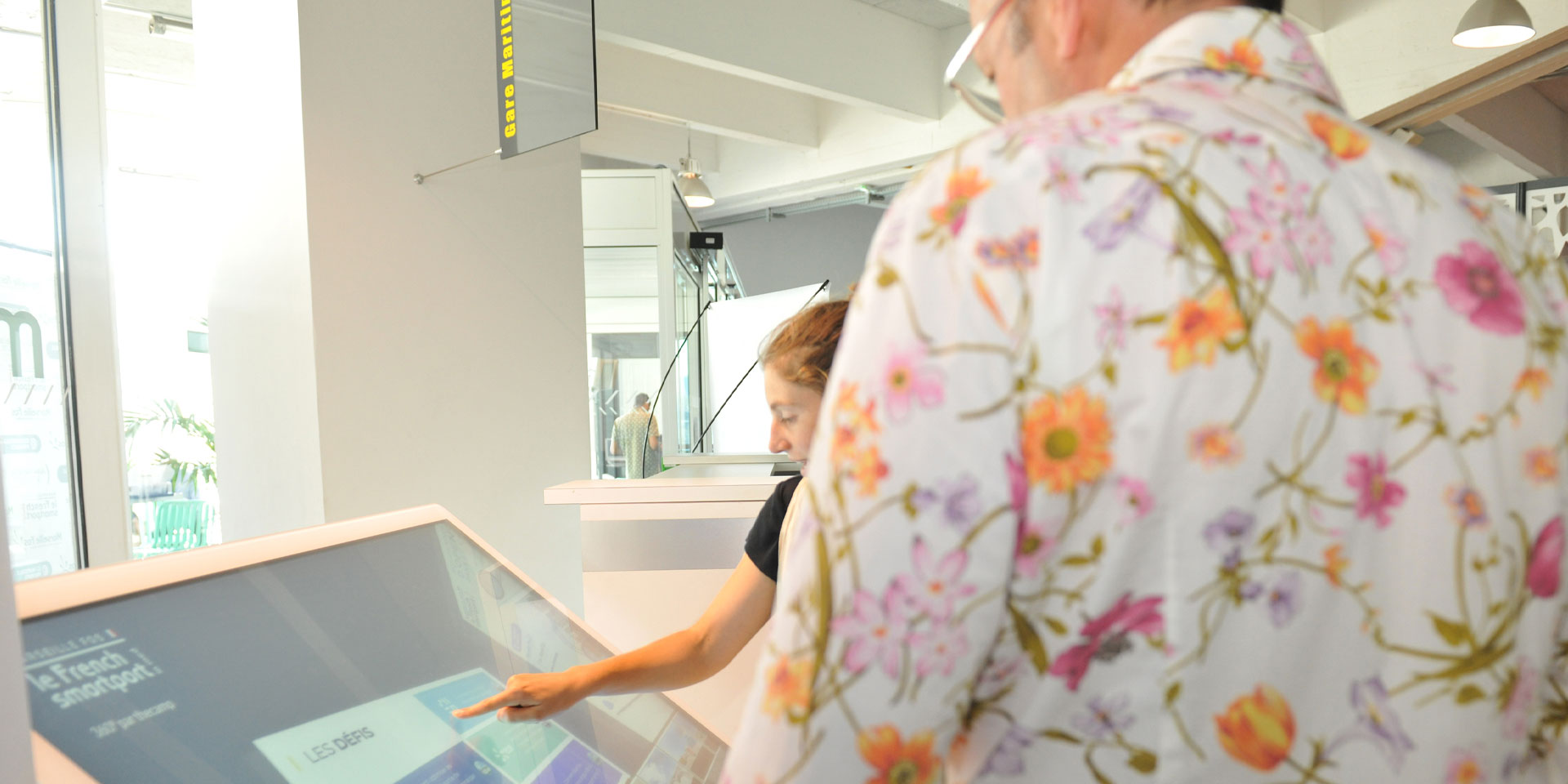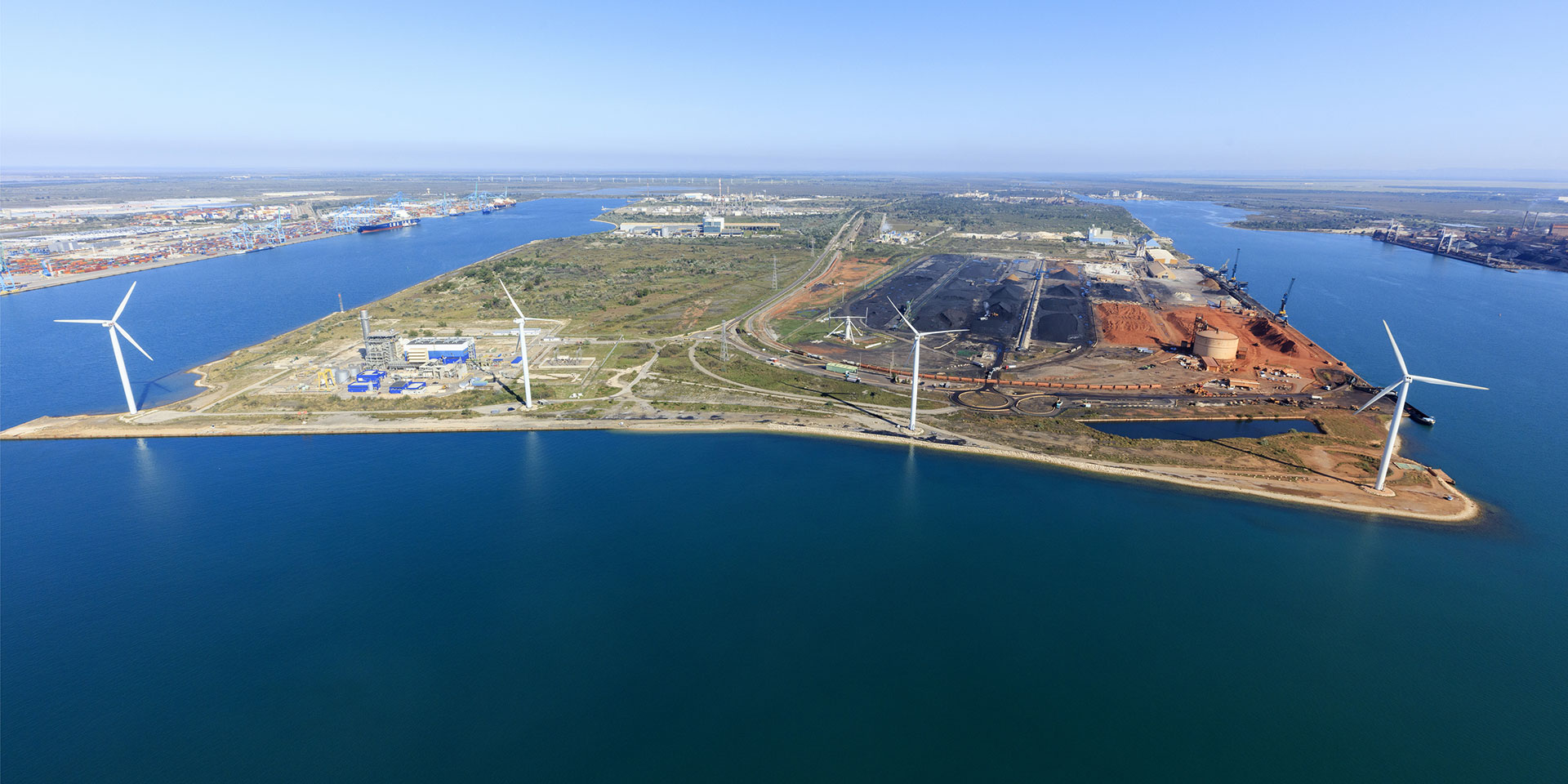Innovative port

Marseille Fos is an innovative port engaged in supporting innovation, digital transition and the circular economy in its activities on a daily basis. Innovation is an important part of the strategic project and a key factor in the area's economic development. Discover below the flagship actions undertaken alongside our private and public partners.
Smartport Challenge

Since 2019, the French smartport in med and its partners have been organising an annual challenge, for which, innovative companies are selected to take up the challenges of large groups established on the territory.
During a determined period, the competitors must test and implement their solution on premises made available by the partner groups. A financial reward is awarded to the winners.
In 2020, during the Smartport Day, which brings together the winners of the challenge to present their work, the French smartport in med launched the first edition of its Hackathon.
With the third Smartport Day in 2021, the 9 selected startups are responding to new challenges.
French smartport in med
Initiated by the Port of Marseille Fos, the Marseille Provence Chamber of Commerce and Industry and the University of Aix-Marseille Provence, the "French smartport in med" initiative is based on four operational challenges:
- A FLUIDER PORT with intelligent and efficient logistics thanks to state-of-the-art management systems based on digital technologies.
- A GREENER PORT, in the service of environmental performance, which aims to reduce or optimise the use of resources and to pool utilities, energy and materials.
- A GREENER PORT that develops renewable energy by supporting projects that reduce the environmental impact of maritime transport and other port activities.
- A MORE INNOVATIVE PORT, creating wealth and jobs, connected to a digital offer of the highest world standards.
The French smartport in med affirms and consolidates the port vocation of the Aix-Marseille-Provence metropolis and takes advantage of the digital revolution.
It reveals the commitment of the actors of the port cluster to build the port of tomorrow. By centring their actions on innovation, together they are enhancing the potential of the economic fabric, whilst aiming at sustainable development.
Circular economy and innovative projects

In the current context of economic, technological and environmental changes, the circular economy represents a lever for competitiveness. The deployment of circular solutions makes it possible to transform the constraints linked to the scarcity of resources into opportunities that create socio-economic and environmental values for the territory.
Piicto
The Port of Marseille Fos, together with the industrial and institutional partners of its ecosystem, is at the initiative of numerous projects in favour of the circular economy, particularly in the industrial port area of Fos-sur-mer. The Caban-Tonkin Industrial and Innovation Platform (Piicto), whose aim is to improve competitiveness and the development of industrial activities and innovation in this area, is an illustration of this.
Piicto is home to two projects aimed at recovering industrial gases : Vasco 2 & Carbon4Pur.
Innovex
Located on the Caban-Tonkin Industrial and Innovation Platform, the Innovex incubator is an accelerator for innovative demonstration projects, in connection with new industrial and energy sectors. It houses, among others, the first French Power to Gas demonstrator : Jupiter 1000
Digital Transition

Ci5
The Port of Marseille Fos is a shareholder in the company Marseille Gyptis International (MGI), created in 1985, which has developed, in collaboration with Thalès, the Cargo Community System (CSS): Ci5
By integrating new technologies and innovations from Big Data, IoT, Artificial Intelligence, the smart container and blockchain, among others, Ci5 enables better control and management of the entire logistics chain, for a more efficient supply chain. For Ci5, MGI and the Port of Marseille Fos won the 2019 Digital Transformation Award.
Neptune Port
Neptune Port is a port of call management application designed to orchestrate the interconnections between its multiple users.
The Neptune Port solution integrates the Guichet Unique Portuaire and allows declarants in European Union ports to carry out their administrative formalities in a completely dematerialised way. The application offers a search engine: Neptune Port Regular Lines. A powerful tool presenting the global maritime transport offer and helping international transport professionals to optimise the transport of their goods from/to the port of Marseille Fos.
Digital hub and submarine cables
The Port of Marseille Fos has started the construction of the new landing infrastructure (connection between the submarine and terrestrial part) of submarine data cables, which will provide a reliable and convenient ready-to-use interface for cables routed to Marseille from all over the world.
The first phase (end of 2020) will host up to six cables which are the connection points for a dozen submarine cable links to the rest of the world.
Pilote MeRs
Supported by the interministerial delegation for the development of the Mediterranean-Rhône-Saône port and logistics axis, this project aims to experiment with a pilot demonstrator to test the securing of the digital transport chain in order to improve the fluidity, safety and competitiveness of the logistics chain and intermodal goods routing on the Rhône-Saône axis and to measure its ecological footprint.
During the first half of 2019, the companies MGI, BuyCo and KeeeX successfully tested the dematerialisation of complete export processes between the ports of Lyon and Marseille Fos, a major logistics axis for France.
The eco-calculator
The CO2 emission eco-calculator developed by the start-up SeaRoutes, in partnership with the port of Marseille Fos during the Smartport Challenge 2019, is intended for the actors of the logistics chain. It calculates the environmental footprint of the maritime routes taken by the ships, based on their position history. The solution also offers the possibility of comparing the carbon footprint of different routes on a given journey with different crossing points.

